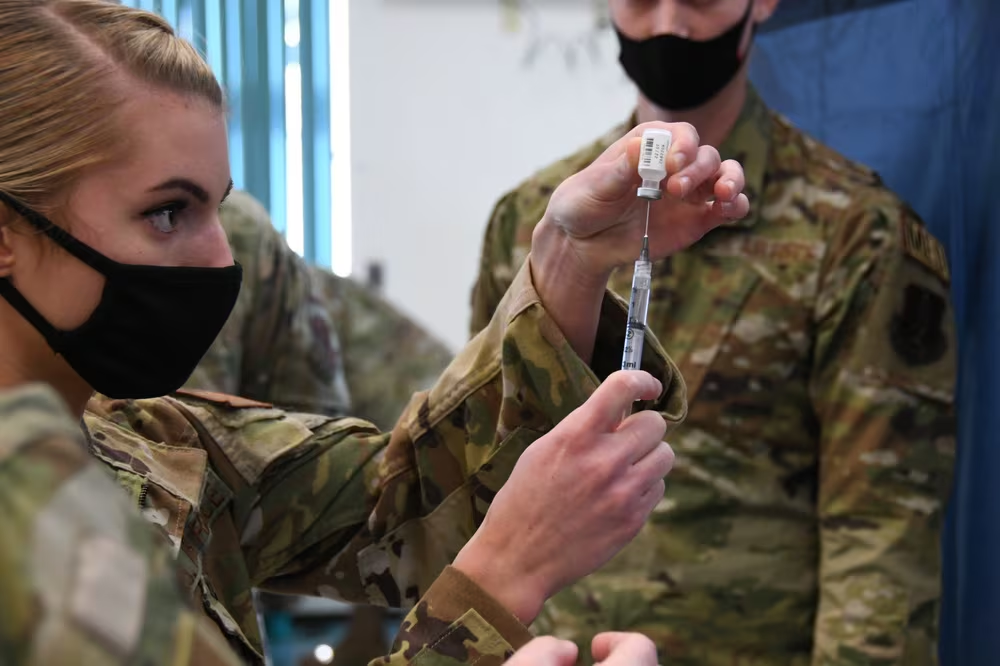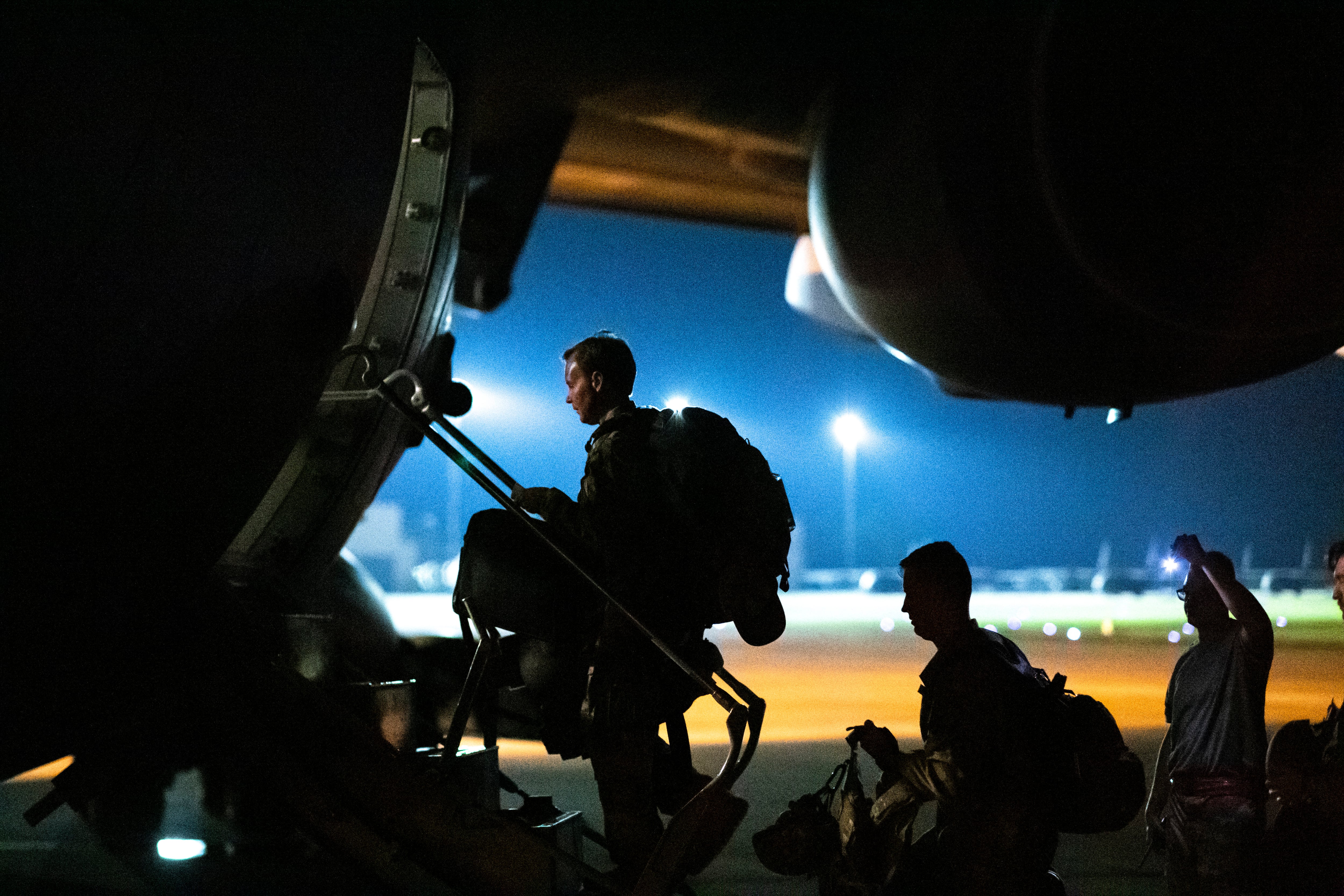Troops who refuse the coronavirus vaccine won’t see any extra protections or leniency in how their dismissals are handled, Defense and Veterans Affairs officials confirmed Wednesday.
Instead, decisions on whether to give those individuals other-than-honorable discharges — potentially blocking them from a host of veterans benefits — will be left to local commanders, and their cases won’t receive any preferential evaluations for veterans’ benefits eligibility, despite recent lobbying from Republicans lawmakers for a less punishing approach.
“We see the vaccine as a readiness issue,” said Gil Cisneros, Defense Department undersecretary for personnel, during testimony before the Senate Veterans’ Affairs Committee. “Any discharge decision is up to the individual service as to how they proceed with that.”
Earlier on Wednesday, Air Force and Space Force officials announced that about 8,500 airmen missed the Nov. 2 deadline to get the coronavirus vaccine. That represents about 3 percent of the services’ total personnel.
RELATED

The other military services have similar deadlines in coming weeks.
Cisneros acknowledged concerns from a small portion of the active-duty force about the vaccines but said officials are steadfast in their belief the mandate is needed. As such, the department does not plan to put any special programs or dispensation in place for individuals dismissed for refusing the shots.
VA Deputy Secretary Donald Remy said that those cases will be evaluated by department benefits officials to weigh “mitigating or extenuating circumstances, performance and accomplishments during their service, the nature of the infraction and the character of their service at the time of their discharge.”
That’s standard operation for all veterans, and the department is not planning to handle vaccine refusals in a separate or different way.
Individuals with honorable discharges will be eligible for things like GI Bill benefits, VA home loans and transition assistance programs. Individuals with other-than-honorable discharges are still guaranteed mental health care services through VA, but may be blocked from most other benefits.
RELATED

In September, House lawmakers approved language in their draft of the annual defense authorization bill that would block military officials from issuing dishonorable discharges to troops who refuse vaccines, arguing that it was too severe of a punishment for the offense.
However, that measure still needs to survive negotiations with Senate lawmakers before becoming law, likely in late December.
Conservative lawmakers have speculated that thousands of troops could be facing dismissal from the ranks before then.
At least 71 service members have died from complications related to coronavirus since the start of the pandemic 20 months ago. None of the troops who died were fully vaccinated.
Among Veterans Affairs patients, at least 16,157 have died from virus complications since March 2020.
Leo covers Congress, Veterans Affairs and the White House for Military Times. He has covered Washington, D.C. since 2004, focusing on military personnel and veterans policies. His work has earned numerous honors, including a 2009 Polk award, a 2010 National Headliner Award, the IAVA Leadership in Journalism award and the VFW News Media award.





